Other Power Tools
We are located on 40 beautiful acres in Elizabeth, Colorado. The namesake for our ranch comes from Rachel’s last name. The woodshop is located in our 48×60 barn, along with a metal shop and an automotive lift. You can rent time in our shop with the use of our woodworking tools to complete your project. You are welcome to bring your own tools and materials. Members enjoy access to all our power tools. If you require materials such as wood, glue, sandpaper, and so on, contact us to get a quote. This page includes descriptions of all our power tools that are not listed on our services page to be rented individually.
About Power Tools in the Woodshop
Power tools are essential for any woodworking shop and are used to complete a variety of tasks. Some commonly used power tools include:
- Sanders: used for smoothing and removing rough or uneven surfaces on wood, making it ready for a final finish.
- Drills: used for making holes in wood, metal, and other materials for screws, bolts, and other hardware.
- Nailers and staplers: used for attaching pieces of wood together, such as in cabinetry or furniture making.
- Grinders: used for shaping and sharpening tools, removing rust and corrosion, and cutting through tough materials.
- Scroll saw: used for cutting intricate and detailed patterns in wood and other materials with precision and control.
- Jig saw: a handheld power tool used for cutting curves, angles, and irregular shapes in wood, metal, and other materials, making it a versatile tool for a variety of woodworking projects.
- Circular saw: used for making straight and accurate cuts in wood, metal, and other materials, and is commonly used for cutting large sheets and planks.
- Reciprocating saw: used in woodworking for cutting through a variety of materials, such as wood, metal, plastic, and more, and is especially useful for demolition and rough cutting tasks.
- Chain saw: used for cutting through large logs and trees, and is commonly used for logging, land clearing, and other heavy-duty tasks.
These power tools are designed to save time, effort, and increase accuracy compared to manual methods, making them a valuable addition to any woodworking shop. Whether you’re working on a large-scale project or a small hobby, these tools will make your work easier, faster, and more efficient.
Our sanding tools
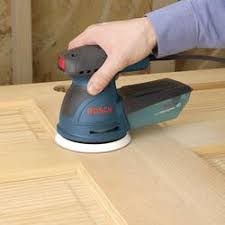
Orbital Sander
Orbital sanders are a type of power tool used for smoothing and finishing surfaces by rapidly spinning a sanding disk in small circular or elliptical orbits.

Belt Sanders
Belt sanders are a type of power tool used for removing material and shaping surfaces, typically on wood and metal, by rapidly spinning a continuous loop of sandpaper around two drums.
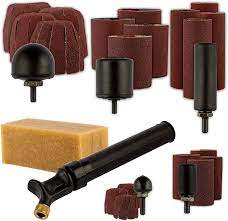
Inflatable Sanders
An inflatable sander is a type of sanding tool that uses an inflatable bladder to hold and secure sandpaper, allowing it to conform to the contours of a surface and provide more consistent and uniform sanding.
Our saws
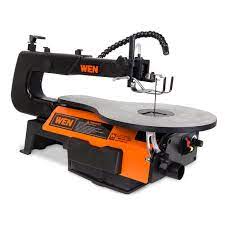
Scroll Saw
The scroll saw is a versatile power tool used in woodworking for cutting intricate and detailed patterns in wood, metal, and other materials with precision and control.
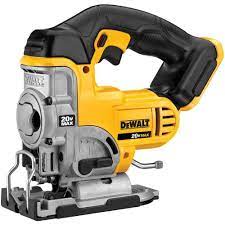
Jig Saw
A jigsaw is a handheld power tool used for cutting curves, angles, and irregular shapes in wood, metal, and other materials, making it a versatile tool for a variety of woodworking projects.

Circular Saw
A circular saw is a versatile power tool used in woodworking for making straight and accurate cuts in wood, metal, and other materials, and is commonly used for cutting large sheets and planks.
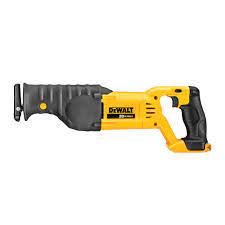
Reciprocating Saw
A reciprocating saw is a powerful and versatile power tool used in woodworking for cutting through a variety of materials, such as wood, metal, plastic, and more, and is especially useful for demolition and rough-cutting tasks.
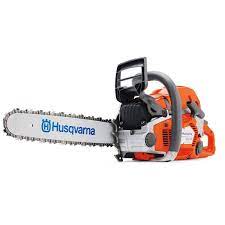
Chain Saw
A chainsaw is a powerful and efficient power tool used in woodworking for cutting through large logs and trees and is commonly used for logging, land clearing, and other heavy-duty tasks.
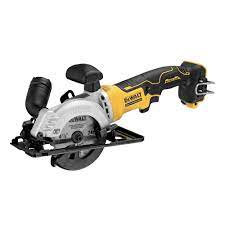
Mini Circular Saw
A small handheld circular saw, also known as a compact or mini circular saw, is designed for making small, precise cuts in wood, metal, or plastic materials. They are typically used for cutting through thin sheets of plywood, paneling, or other similar materials, as well as for trimming, shaping, and cutting small pieces of wood or metal. They are often used in construction, home improvement, and DIY projects where a larger saw would be too cumbersome or difficult to maneuver.
Our drills
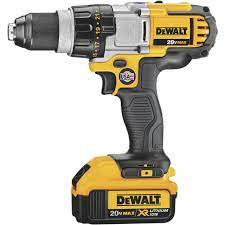
1/2 Inch Drill
A 1/2″ drill is a type of power tool designed for drilling holes in wood, metal, concrete, and other materials using a rotating cutting tool or bit with a 1/2 inch diameter shank.
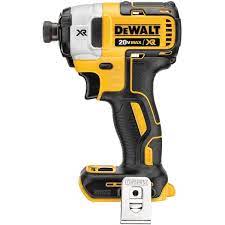
Impact Drill
An impact drill is a type of power tool that combines a hammering action with a rotary drilling motion to create a high-torque, high-impact force that can drive screws and drill holes through tough materials such as concrete, brick, and metal.
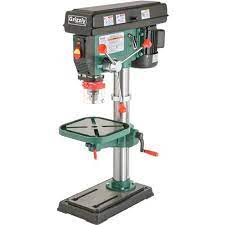
Drill Press
A drill press is a stationary power tool used for drilling holes in a variety of materials, typically wood, metal, and plastics, and features a rotating spindle and chuck that holds a drill bit in place, and an adjustable table and support column to ensure accurate and precise drilling.
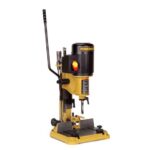
Mortiser
A mortiser is a type of woodworking machine that is specifically designed to create square or rectangular holes, also known as mortises, in wood and other materials. It typically consists of a drill bit or chisel that is held in place by a rotating head or spindle, and a workpiece support system that provides stability and precision during the mortising process.
Nailers and Staplers
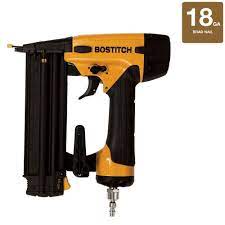
Pin Nailer (18 Gauge)
An 18 gauge pin nailer is a type of power tool that is used to drive 18 gauge pin nails into wood and other materials. Pin nails are very small and thin, typically measuring around 1-2 inches in length, and are used to join thin pieces of material together without leaving visible marks or holes. The pin nailer uses compressed air or electricity to drive the pins into the material, providing a fast and efficient way to join materials without the need for clamps or other joining methods.
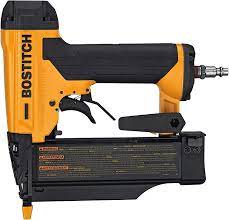
Pin Nailer (23 Gauge)
A 23 gauge pin nailer is a type of power tool that is used to drive 23 gauge pin nails into wood and other materials. 23 gauge pins are even smaller and thinner than 18 gauge pins, typically measuring around 1 inch or less in length, and are used to join thin pieces of material together without leaving visible marks or holes. The pin nailer uses compressed air or electricity to drive the pins into the material, providing a fast and efficient way to join materials without the need for clamps or other joining methods. The 23 gauge pin nailer is often used for delicate woodworking projects where the appearance of the finished piece is important.
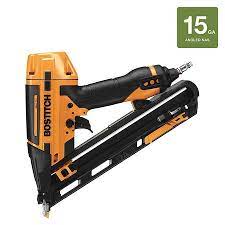
Finish Nailer (15 Gauge)
A 15 gauge finish nailer is a type of power tool that is used to drive 15 gauge finish nails into wood and other materials. 15 gauge nails are thicker and stronger than 18 gauge or 23 gauge nails and typically measure around 1.5 to 2.5 inches in length. The finish nailer uses compressed air or electricity to drive the nails into the material, providing a strong and secure way to join materials together. The 15 gauge finish nailer is often used for larger woodworking projects, such as furniture building or framing, where a stronger connection is required. The finish nails can also be countersunk and covered with wood putty for a seamless finish.
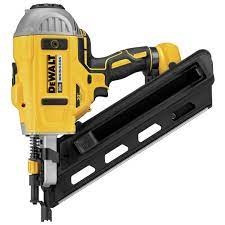
Framing Nailer
A framing nailer is a type of power tool used in construction and woodworking to drive large framing nails quickly and efficiently. It uses compressed air or gas to drive nails into wood, often used in the construction of walls, roofs, and other framing structures. The framing nailer is designed to handle large and thick nails that can range in size from 2 to 3.5 inches in length, providing a secure and sturdy connection. Framing nailers can be operated with a trigger or a sequential actuation mechanism that requires the tip of the tool to be pressed against the surface to be nailed before firing, ensuring safe and precise nailing. They are typically used by professional contractors or DIYers for large-scale construction projects.
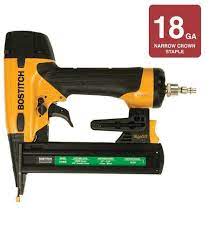
Narrow Crown Stapler
A narrow crown stapler is a type of power tool used to drive narrow crown staples into a variety of materials, such as wood, plywood, and particleboard. The narrow crown stapler is similar to a brad nailer or finish nailer, but instead of nails, it uses thin staples that are typically 1/4 inch in width, allowing for a tighter and more secure hold. This makes it ideal for attaching trim, molding, and other decorative elements to furniture, cabinets, and walls, as well as for fastening wood panels and other construction materials together. Narrow crown staplers are commonly used by professional carpenters, woodworkers, and DIY enthusiasts for a range of projects, from framing to finishing.
Other Tools
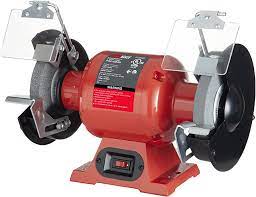
Bench Grinder
A bench grinder is a power tool used for sharpening, grinding, and shaping metal and other materials in various applications such as woodworking, metalworking, and automotive repair.
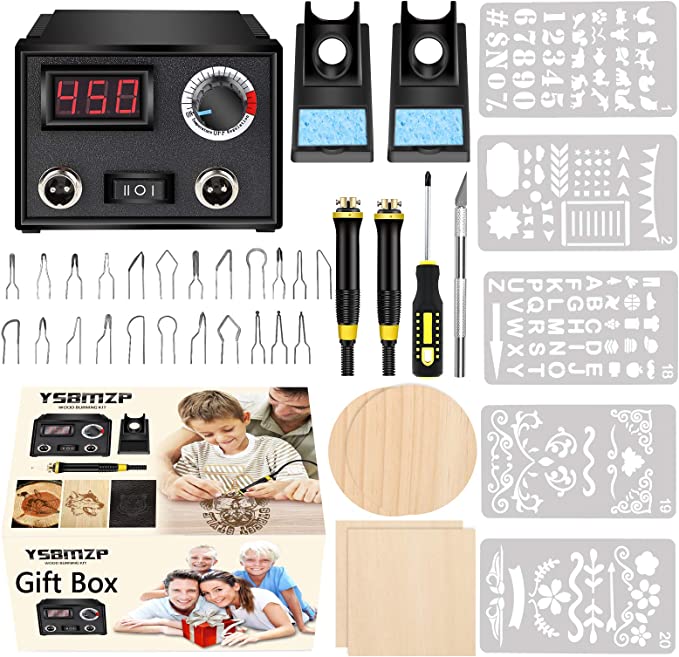
Wood Burner
A wood burner, also known as a pyrography tool, is a device used for burning designs and patterns onto wood, leather, and other materials using heat.
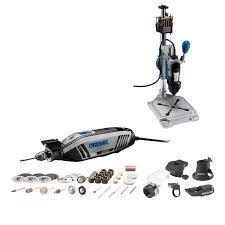
Dremel
A Dremel is a brand of rotary tool that is used for a wide range of applications, such as cutting, sanding, grinding, and polishing a variety of materials, including wood, metal, and plastic. The tool is designed to be lightweight and versatile, allowing for precision work and detail-oriented tasks that may not be possible with other power tools. Dremel tools are commonly used for projects that require intricate designs or complex shapes, such as jewelry making, engraving, and woodworking. They are also popular for home improvement projects, such as sanding and grinding metal or smoothing out rough edges on woodwork. With the use of various attachments and accessories, Dremel tools can be used for a wide range of applications, making them a valuable addition to any workshop or tool collection.
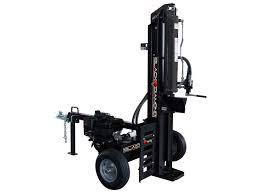
Log Splitter
A log splitter is a machine designed to split wood logs into smaller pieces, typically for firewood or other wood-based products. A log splitter works by applying force to a log using a hydraulic or electric mechanism. The log is placed on a platform or cradle, and a hydraulic piston or electric motor drives a splitting wedge into the log. The force applied by the wedge causes the log to split along its grain into smaller pieces. Some log splitters have a two-stage pump that can increase the force applied to the log, allowing them to split larger and harder logs.
